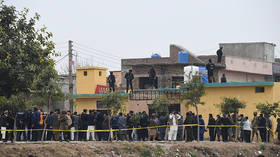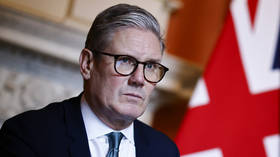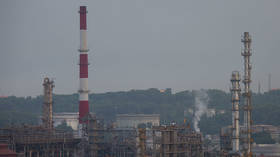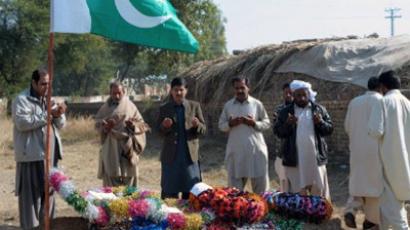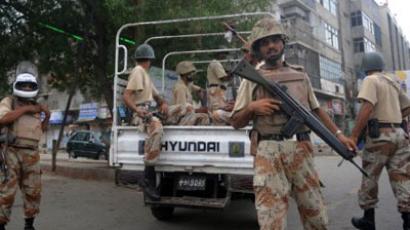3 in 4 Pakistanis now consider US an enemy as resentment grows
Approximately 3 in 4 Pakistanis now consider the US an enemy according to a new Pew research poll released on June 27th. The polls show increasing hostility towards the US and new lows in the already strained relationship between the two countries.
The Pew Research poll conducted by the Pew Global Attitudes Project has published stark numbers. The poll, entitled “Pakistani Public Opinion Ever More Critical of US”, says 74% of Pakistanis now view the US as an ‘enemy’ up from 69% last year, while support for President Barack Obama continues to be exceptionally low. A majority of Pakistanis hold the view that Obama has been just as bad a president as George W. Bush was in his last year in office. Furthermore, approximately 4 in 10 Pakistanis believe that US military and financial aid is having a negative impact on their country; only 1 in 10 believes the impact has been positive.Tensions have been extreme between the two countries due to unceasing US drone attacks inside Pakistani territory. Pakistan shut down a highly strategic NATO supply route through its territory into Afghanistan last November in response to a NATO air strike that killed 24 Pakistani troops on the Afghan border.The US has argued that the air strikes are necessary to counter the insurgency movements in Afghanistan. However, resentment towards the tacit alliance with the US allowing the drone strikes has fueled a domestic insurgency in Pakistan, leading to broad outrage at the resulting loss of Pakistani life.“Pakistan has lost somewhere between 5000 to 6000 soldiers and paramilitary soldiers, but more than that, we’ve lost more than 35,000 civilians, and these people died because of terrorist bombings,” Ahmed Quraishi, President of the Paknationalists forum, told RT in an interview.However, Washington’s view differs, with many in the United States government seeing Pakistan as a willing recipient of US humanitarian aid and funding, but an uncooperative US partner in the region. In May, a US senate panel voted to cut aid to Pakistan if Islamabad did not re-open the NATO supply corridor in a frustrated attempt to resolve the months-long dispute."We're not going to be giving money to an ally that won't be an ally," Senator Lindsey Graham, the panel's top Republican, told reporters at the Senate vote.However, there is division on how far Pakistani loyalty to US should extend, and the high cost that Pakistan is paying for allowing US aid.“They want the Pakistanis to do the dirty work for us, and the Pakistanis have simply said ‘we supported you for 11 years, and we can’t do it anymore, you’re killing our stability.’ They have to stop the civil war in the country, they have to stop the war that’s going on in their own territory because of their helping the United States, so they have number of problems which I think amount to a mess, and they’re going to be left high and dry when we leave,” said SB Michael F. Scheuer, a former CIA intelligence officer. “There is one mistake that we have committed we put all our eggs in the American basket,” Ahmed Quraishi continued. “And part of the deterioration of our strategic position of the past decade since 2001 is because of this fact, that we completely relied on the Americans…They’ve ditched us before as well, but we made this mistake, and we’re now trying to correct that mistake.”
Back to an old friend
The United States has been “diplomatically very very clumsy” with Pakistan in not treating the country with respect and violating its sovereignty, says journalist Gilbert Mercier, who stressed that caution needed to be exercised when dealing with Pakistan. “What they can do is shut down the border to Afghanistan and shut down the supply route,” he told RT. “The US hasn’t treated them with respect and that’s what you get for doing that.”As relations between the troubled allies have deteriorated and with the US enjoying cozy ties with India, Pakistan may now seek rapprochement with China, its traditional ally, the journalist believes. “The rapprochement with China is actually not surprising at all because it’s an old ally of Pakistan from the 60s and 70s. Pakistan sought support from China because at the time the Soviet Union was supporting India.”




